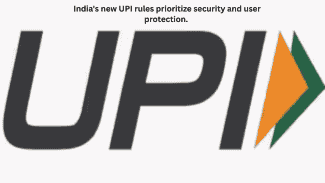
NEW DELHI, In a significant move to strengthen the security of India’s growing digital payments system, the National Payments Corporation of India (NPCI) has announced that all peer-to-peer (P2P) “Collect Requests” will be discontinued, effective October 1, 2025. This action affects major payment platforms like Google Pay, PhonePe, and Paytm, and responds to the increase in online financial fraud that has impacted the Unified Payments Interface (UPI) system.
For millions of users across the country, this change represents a decisive shift from a system that allowed users to “pull” funds from others to one that relies only on “push” transactions. A “collect request,” also known as a pull transaction, allowed someone to ask another user for money. If the recipient accepted the request by entering their UPI PIN, the money would move from their account to the requester’s. Although designed for convenience, this feature was often misused by fraudsters who sent fake requests to unsuspecting people, frequently pretending to be refunds or payments for goods.
The NPCI had previously tried to reduce this risk by capping the amount for a collect request at ₹2,000. However, as fraudsters became more skilled, the misuse continued. This complete discontinuation for P2P transactions is a more definitive step. By removing this high-risk option, the NPCI aims to offer a more secure and reliable platform for its over 40 crore unique users.
Impact on Users and the Future of Digital Payments
The new rule will require users to make a slight adjustment at first, but it overall benefits security. It reinforces a key principle of financial transactions: the payer must have full control over starting a payment. From now on, users must start all P2P transactions by scanning a QR code, entering a UPI ID, or using a contact’s phone number. This straightforward change should significantly reduce the most common type of UPI fraud
While the “collect request” feature for person-to-person payments will be removed, it will still be available for verified merchants. This is an important distinction, as it allows users to continue making secure payments to businesses and e-commerce platforms like Amazon, Swiggy, and Flipkart, which often use this feature to collect payments upon order confirmation.
This trending move by the NPCI aligns with India’s broader vision of creating a robust and secure digital economy. It is a testament to the nation’s commitment to protecting its citizens’ financial well-being and maintaining the trust that is the bedrock of the digital payments system. As India’s digital economy continues its rapid expansion, so too does the need for vigilant security measures. For a deeper look into the world of digital finance, you can read more in our Technology section. This policy change puts India in a leading ranking position globally for proactive cybersecurity measures.
Navigating the Change: What to Do
Users are advised to update their UPI apps and remain vigilant. The key takeaway is simple: never enter your UPI PIN unless you have personally initiated a transaction. This new rule essentially removes the “middleman” of a request, making all transactions “push” and therefore requiring the user’s explicit intent. This is a crucial step towards building a safer and more transparent digital ecosystem, ensuring that every transaction is initiated with the full knowledge and consent of the sender.
For more updates on financial regulations and their impact on daily life, visit our Latest News section.



